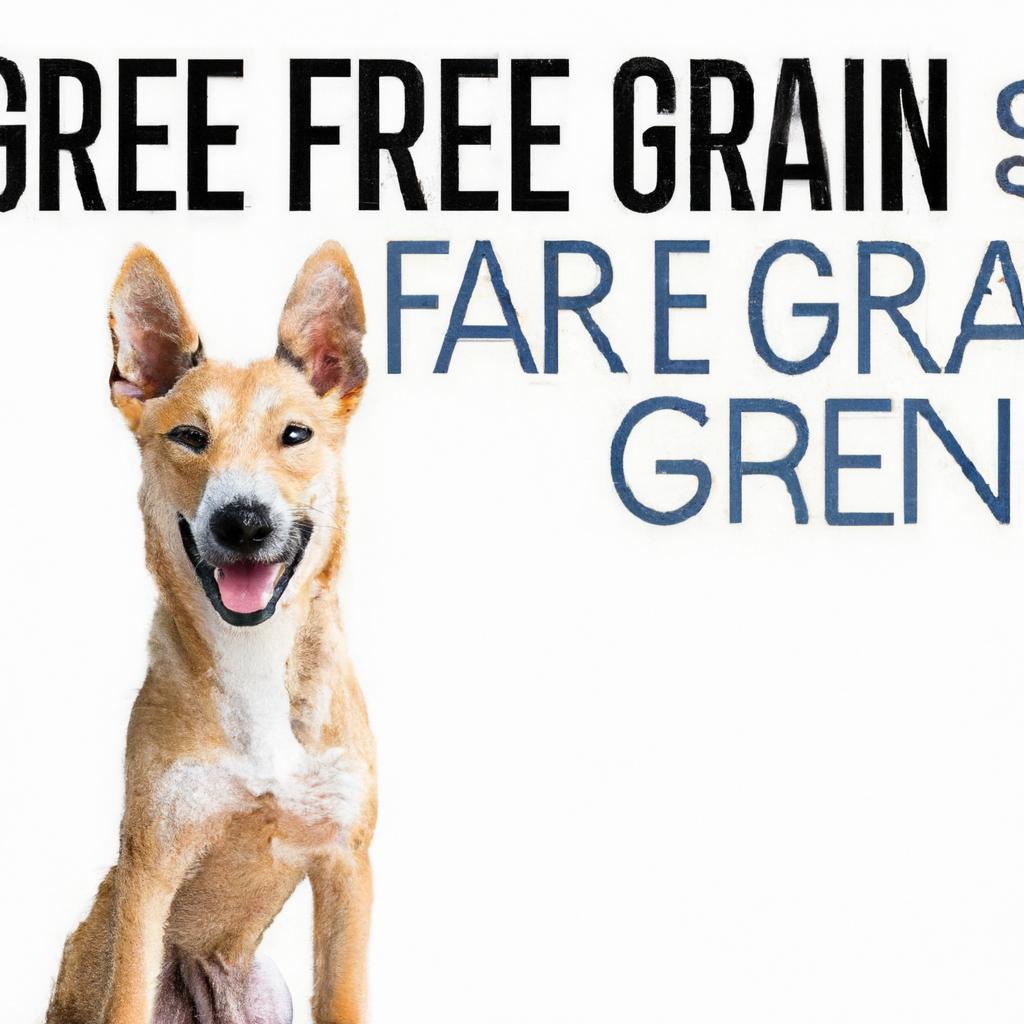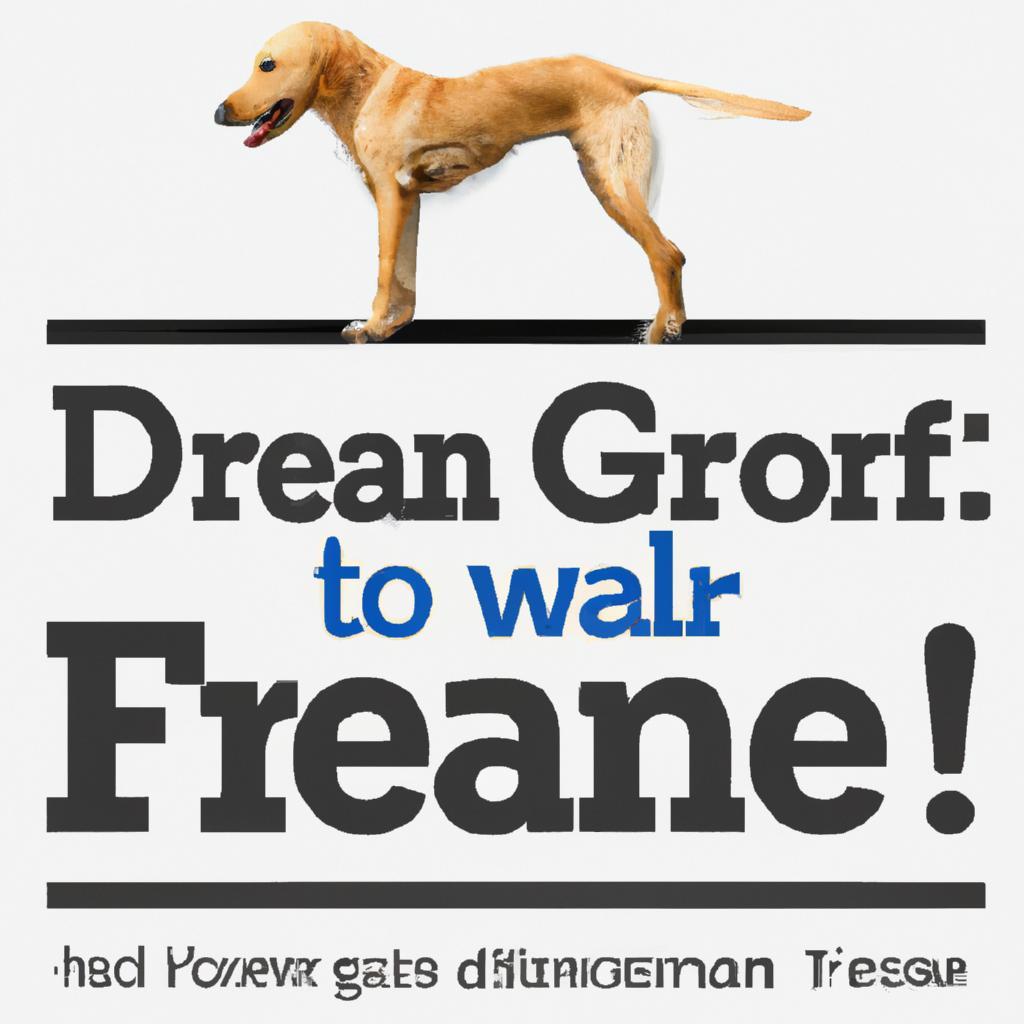When Max, a lively golden retriever, started scratching incessantly, his owner, Sarah, was at a loss. After consulting her vet, she switched to grain-free food. Within weeks, Max’s coat gleamed, and his energy soared. Sarah learned that some dogs, like Max, thrive on grain-free diets, which can reduce allergies and improve digestion. While not all dogs need this change, understanding their unique needs is crucial. Choosing the right food can transform your dog’s health and happiness—just like it did for Max.
Contents
- Understanding the Nutritional Needs of Dogs in Relation to Grain-Free Diets
- Evaluating the Potential Benefits of Grain-Free Dog Food for Health and Wellness
- Identifying Risks and Considerations Associated with Grain-Free Diets
- Making Informed Choices: Recommendations for Selecting the Right Dog Food
- Q&A
Understanding the Nutritional Needs of Dogs in Relation to Grain-Free Diets
When considering a grain-free diet for dogs, it is essential to understand their unique nutritional requirements. Dogs are omnivores, which means they can thrive on a variety of food sources, including both animal and plant-based ingredients. However, the debate surrounding grain-free diets often centers on the quality and digestibility of the ingredients used. Many pet owners are drawn to grain-free options, believing they offer superior nutrition, but it’s crucial to evaluate the overall balance of nutrients in these diets.
One of the primary concerns with grain-free diets is the potential for nutrient deficiencies. While grains can be a source of carbohydrates, fiber, and essential vitamins, grain-free formulations often replace these with alternative ingredients such as peas, lentils, and potatoes. While these substitutes can provide some nutritional benefits, they may not always deliver the complete range of nutrients that dogs need. It’s vital to ensure that any diet, grain-free or not, includes a balanced mix of proteins, fats, vitamins, and minerals to support your dog’s health.
Moreover, the protein source in grain-free diets is often animal-based, which can be beneficial for dogs that require higher protein levels for energy and muscle maintenance. However, not all protein sources are created equal. It’s important to choose high-quality proteins that are easily digestible and provide the necessary amino acids. Additionally, the inclusion of healthy fats is crucial for maintaining skin and coat health, as well as supporting overall cellular function. Therefore, when selecting a grain-free diet, pet owners should prioritize formulations that emphasize quality ingredients and a well-rounded nutrient profile.
Lastly, it’s essential to monitor your dog’s individual response to a grain-free diet. Some dogs may thrive on these diets, exhibiting improved coat condition, energy levels, and digestive health. Others, however, may experience adverse reactions or health issues, such as allergies or gastrointestinal upset. Regular veterinary check-ups and open communication with your veterinarian can help ensure that your dog’s dietary needs are being met effectively. Ultimately, the best diet is one that is tailored to your dog’s specific health requirements, lifestyle, and preferences, whether it includes grains or not.
Evaluating the Potential Benefits of Grain-Free Dog Food for Health and Wellness
When considering dietary options for our canine companions, the potential benefits of grain-free dog food have sparked considerable interest among pet owners. Many dogs, like humans, can experience sensitivities to certain ingredients, and grains are often at the forefront of these concerns. By eliminating grains from their diet, pet owners may observe improvements in their dog’s overall health and wellness.
One of the primary advantages of grain-free diets is the **reduction of allergens**. Dogs suffering from food allergies or intolerances may benefit from a diet that excludes common grains such as wheat, corn, and soy. Instead, grain-free options often utilize alternative carbohydrate sources like sweet potatoes or peas, which can be easier on the digestive system. This shift can lead to a noticeable decrease in symptoms such as itching, gastrointestinal upset, and skin irritations.
Moreover, grain-free dog food is often formulated with **higher protein content**. Many grain-free brands prioritize meat as the primary ingredient, which aligns with a dog’s natural carnivorous instincts. A protein-rich diet can support muscle development, energy levels, and overall vitality. Additionally, the inclusion of quality animal proteins can contribute to healthier skin and a shinier coat, enhancing your dog’s appearance and well-being.
Lastly, grain-free diets can promote **better weight management**. With a focus on protein and healthy fats, these diets can help dogs feel fuller for longer, reducing the likelihood of overeating. This is particularly beneficial for dogs prone to obesity or those needing to shed a few pounds. By maintaining a healthy weight, dogs can enjoy a more active lifestyle, which is essential for their physical and mental health.
Identifying Risks and Considerations Associated with Grain-Free Diets
When considering a grain-free diet for dogs, it’s essential to recognize the potential risks and considerations that accompany this dietary choice. While some pet owners may be drawn to grain-free options due to perceived health benefits, it’s crucial to approach this decision with a well-informed perspective. One primary concern is the possibility of nutritional deficiencies. Grain-free diets often replace grains with alternative carbohydrate sources, which may not provide the same level of essential nutrients that grains offer.
Another significant consideration is the potential link between grain-free diets and certain health issues, particularly dilated cardiomyopathy (DCM). Recent studies have suggested a correlation between grain-free diets, especially those high in peas, lentils, and potatoes, and an increased risk of DCM in dogs. This condition affects the heart muscle and can lead to serious health complications. Therefore, it’s vital for pet owners to consult with a veterinarian before making any drastic dietary changes.
Additionally, the quality of ingredients in grain-free dog foods can vary widely. Some brands may prioritize marketing over nutritional value, leading to products that are high in fillers and low in essential nutrients. Pet owners should carefully scrutinize ingredient lists and opt for brands that use high-quality, whole-food ingredients. **Look for** options that include a variety of protein sources and healthy fats to ensure a balanced diet.
Lastly, transitioning to a grain-free diet should be done gradually to avoid gastrointestinal upset. Sudden changes in diet can lead to digestive issues, including diarrhea and vomiting. It’s advisable to introduce new foods slowly, mixing them with the current diet over a period of several days. This approach not only helps the dog adjust but also allows pet owners to monitor their pet’s reaction to the new diet, ensuring that it is a suitable choice for their individual needs.
Making Informed Choices: Recommendations for Selecting the Right Dog Food
When it comes to choosing the right dog food, understanding the nutritional needs of your furry friend is paramount. Dogs, like humans, require a balanced diet that supports their overall health and well-being. While grain-free diets have gained popularity, it’s essential to consider the specific needs of your dog, including their age, breed, and any existing health conditions. Consulting with a veterinarian can provide valuable insights tailored to your pet’s unique requirements.
One of the primary considerations in selecting dog food is the quality of ingredients. Look for brands that prioritize **high-quality protein sources**, such as real meat or fish, as the first ingredient. Additionally, ensure that the food contains **healthy fats** and **essential vitamins and minerals** to promote optimal health. Avoid products with excessive fillers, artificial preservatives, or by-products, as these can detract from the nutritional value of the food.
It’s also crucial to evaluate the potential benefits and drawbacks of grain-free diets. While some dogs may thrive on grain-free options, others may not show any significant improvement. Pay attention to your dog’s reaction to their food; signs of allergies or digestive issues may indicate that a grain-free diet is not suitable. Consider incorporating a variety of food types to determine what works best for your pet, as individual responses can vary widely.
Lastly, always keep an eye on the latest research and recommendations regarding canine nutrition. The pet food industry is continually evolving, and new studies may shed light on the effectiveness of grain-free diets. Stay informed and be open to adjusting your dog’s diet as needed. By prioritizing quality ingredients and being mindful of your dog’s specific needs, you can make informed choices that contribute to a long, healthy life for your beloved companion.
Q&A
-
Is grain-free food better for all dogs?
No, grain-free food is not necessarily better for all dogs. While some dogs may benefit from a grain-free diet due to allergies or sensitivities, others may thrive on traditional diets that include grains. It’s essential to consult with a veterinarian to determine the best diet for your dog’s specific needs.
-
Can grain-free diets lead to health issues?
Yes, recent studies have suggested a potential link between grain-free diets and certain health issues, such as canine dilated cardiomyopathy (DCM). This condition affects the heart and can be serious. It’s crucial to choose a balanced diet and consult with your vet to ensure your dog receives all necessary nutrients.
-
What are the benefits of grain-free food?
Grain-free dog food can offer several benefits, including:
- Improved digestion: Some dogs may find it easier to digest grain-free formulas.
- Allergy management: Grain-free diets can help dogs with specific grain allergies or sensitivities.
- Higher protein content: Many grain-free foods are higher in protein, which can be beneficial for active dogs.
-
How do I choose the right food for my dog?
Choosing the right food involves considering your dog’s age, breed, health status, and activity level. Look for high-quality ingredients, balanced nutrition, and consult with your veterinarian for personalized recommendations. A well-informed choice will ensure your dog remains healthy and happy.
while grain-free diets may offer benefits for some dogs, it’s essential to consult with your veterinarian to determine the best nutrition for your pet. Prioritize balanced, high-quality ingredients to ensure your furry friend thrives.




